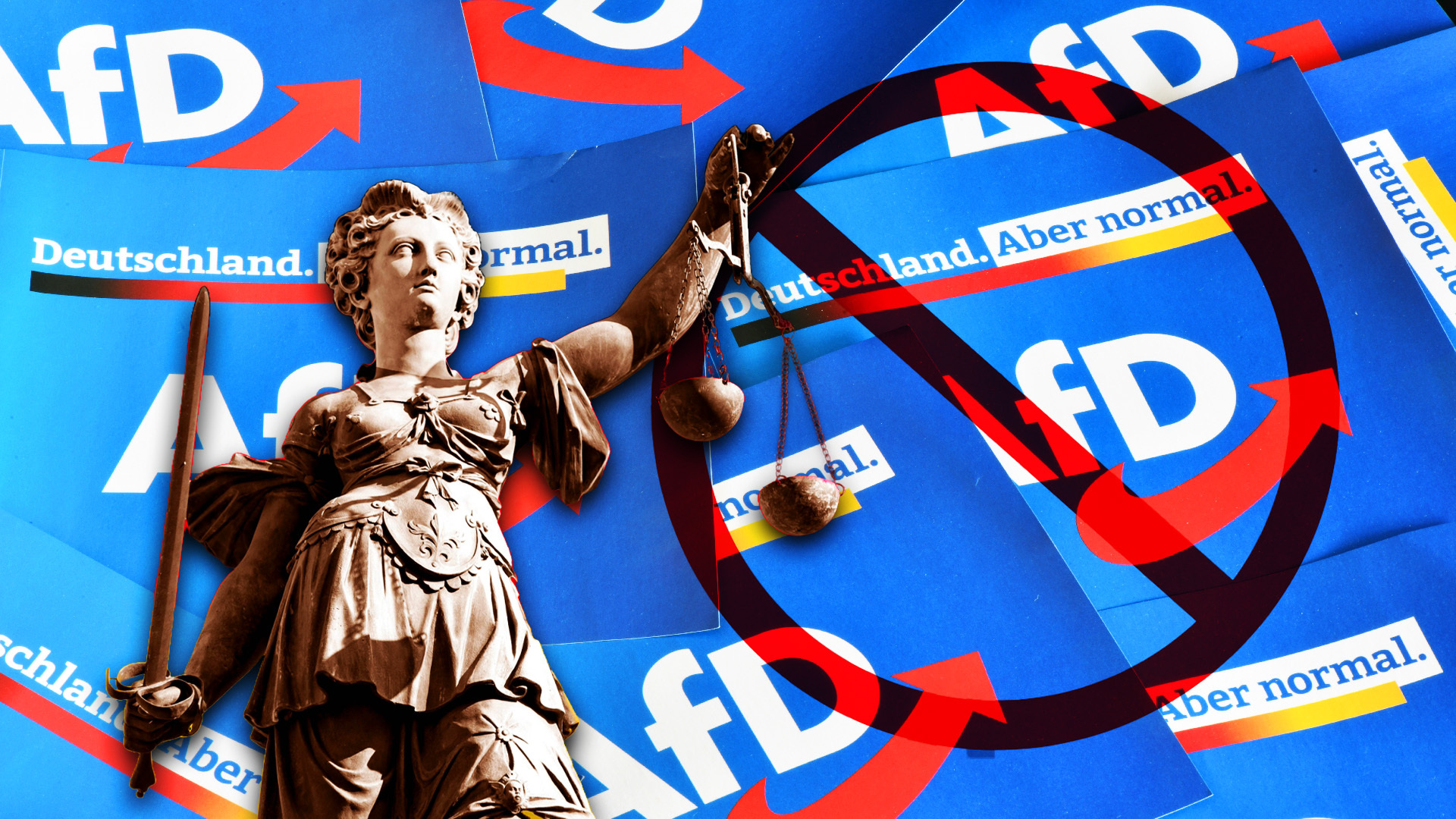There has been talk of banning the Alternative for Germany (AfD) in Germany for some time. Many observers consider the country’s second-largest party, which recently won state elections in Thuringia and came second in Saxony and Brandenburg, to be unconstitutional. Marco Wanderwitz, a CDU member of parliament, agrees – which is why he and over 100 MPs from other parties recently initiated a motion to ban the AfD. However, many other MPs are skeptical and do not believe the motion will succeed.
Among these skeptics is Green MP Renate Künast, who is working on her own motion to ban the AfD and two weeks ago invited Berlin constitutional law expert Christoph Möllers to a video conference to present his views on a possible AfD ban. German publication FREILICH, which attended the conference undercover, learned exactly what was discussed there and was thus able to ascertain what the participants, including several Green MPs as well as MPs from the SPD and FDP, really think about an AfD ban.
The risks of the Wanderwitz motion
At the beginning of the conference, an overview was given of the Künast motion, which differs from the Wanderwitz motion primarily in that it has two stages. This means that it provides for a preliminary examination which focuses on the question of whether the application has a prospect of success in the main proceedings before the Federal Constitutional Court. However, in order to establish a certain prospect of success, the mover of the motion must first provide sufficient evidence.
“If you don’t do that, the motion will be rejected in the preliminary examination, and that’s exactly the big risk in proceedings without a corresponding preliminary examination,” explained Green politician Lukas Benner during the conference. And if that happens, “the AfD will get a letter with the seal with the Karlsruhe eagle on it, saying ‘we are not unconstitutional’ or that there is no longer enough evidence for a main trial on unconstitutionality.”
The lack of evidence
However, here lies another “problem” the lack of evidence and data supporting the motion to ban. So far, no one has been able to prove that the AfD is anti-constitutional. In fact, the available information is thin on the ground. Constitutional law expert Möllers explained that the German government simply lacks the evidence it needs to make an informed judgement.
Without comprehensive data, such a procedure is difficult to assess and carries considerable risks. The available material, which according to Möllers consists of speeches, written and oral statements by AfD members, would “probably not be sufficient” for a successful ban against the AfD.
Notably, Möllers himself was involved in a ban procedure against another party, the NPD, in the past, which was ultimately unsuccessful.
Benner, in turn, pointed to the problems of comparing the NPD ban process to any potential ban on the AfD.
“But the point is that the AfD is not so stupid, to put it bluntly, as to write things in its election manifesto that are against the free democratic basic order. So, the NPD simply had things in its election manifesto, I think banning mosques and similar things, which were simply very clear attacks on religious freedom and other basic freedoms. They made it at least materially somewhat easy to say that there are indications for a party ban. It is different with the AfD. Here, of course, we have extremely radical individuals, extremely radical statements by Höcke and others, but the attribution of a statement by an individual to a party must be justified for each individual case, and whether that is possible, whether that is possible, we want to examine that properly and that is the basic approach of our motion.”
‘You would have to come up with a framework’
Möllers even admits himself at the conference that it was “quite crazy” to want to ban a party that has reached double-digit percentages.
“Banning a party that gets double-digit percentages is just pretty crazy. I would counter that you are obviously doing something that is massively interfering in the political process. I don’t have to tell you that, you know that yourself. But just to say that it is a weak sword, it is a relatively brutal measure in every respect. And I think so, that’s why I’m a bit of a skeptic in general,” he said, adding, “but if you ask me how it works, you have to first make sure that you can even start with it in good conscience. Personally, I’m not actually that far yet. But if you do it, I think you really do have to set it up very broadly.”
Asked by Green MEP Karl Bär whether there was a risk that the AfD, as the subject of monitoring – assuming that the Bundestag was the actor with access to the data available to the Office for the Protection of the Constitution (BfV) – would receive all the data on its own monitoring, Möllers replied that this would certainly be the case and that this was also the dilemma the Bundestag is facing.
However, the constitutional law expert also had a solution: “You would have to come up with a framework,” said Möllers, “by basically setting up a commission which, together with the Parliamentary Control Panel and a few people who know their stuff, who somehow have to be vetted and somehow have to sign something, would then somehow form an opinion. I think that’s how it’s going to work. And then of course you have to keep the AfD out of it. I think that is legally possible. But I think you would have to build a proper framework.”
How the AfD reacted
The AfD reacted with outrage to the statements made at the conference.
“For once it is finally coming to light how people are acting out of pure power politics,” Tobias Peterka, legal policy spokesman for the AfD parliamentary group, told FREILICH. When even an expert expresses skepticism, but then readily points out a way in which it could work, “that’s jaw-dropping.” It is now official for any observer: “Of course this is not about democracy in Germany. At most, it’s about ‘their democracy,’ in which they alone decide who belongs to it,” says Peterka.
The AfD also criticized the Greens’ plans to exclude the party from being informed by the Parliamentary Control Panel:
“In my opinion, it’s not enough to inform only the Control Panel anyway. But how convenient that the authoritative opposition throughout Germany has been kept out for years,” says Peterka.
The Parliamentary Control Panel is a committee of the German Bundestag that oversees the secret and intelligence services. It is parliamentary practice that each parliamentary group can delegate members to the committees according to its strength. This is laid down in Article 12 of the parliamentary rules of procedure of the Bundestag. However, the “old parties” have so far prevented the AfD from sending MPs to the Parliamentary Control Panel to scrutinize Interior Minister Nancy Faeser’s intelligence service.
Peterka also questioned why, if the parties are so sure that the AfD is unconstitutional, they are so afraid that ready-made “evidence” could reach the AfD. “That’s not only undemocratic, it’s anti-democratic. Quite openly and banally,” he said, describing the approach as a “left-wing game.”
The German BfV is somewhat comparable to the FBI in the United States, but is even more openly politicized. For example, Haldenwang is a member of the CDU party, which views the AfD as an intense electoral rival.
Compare how Haldenwang addresses the AfD and how he treats the… pic.twitter.com/36Sj0Dj6W0
— Remix News & Views (@RMXnews) June 27, 2024The outcome is uncertain
It is uncertain how the discussion about banning the AfD or the outcome of the Wanderwitz motion or any other motion will turn out. What is certain is that the Bundestag is running out of time. New elections are due in February next year, which is likely to make things even more difficult for those in favor of banning the AfD.
Möllers addresses this fact during the meeting, stating: “The other advantage is perhaps more purely political. I have simply looked again at the arguments of my colleagues, saying, well, we now have a certain momentum, we now have a majority somewhere for this motion, which we may no longer have after the next federal election, and we are then basically creating a push, so to speak, which might otherwise no longer be possible, to get the Bundestag to decide in favor of it.”
FREILICH has also produced a complete transcript of the presentation involving Möllers.






